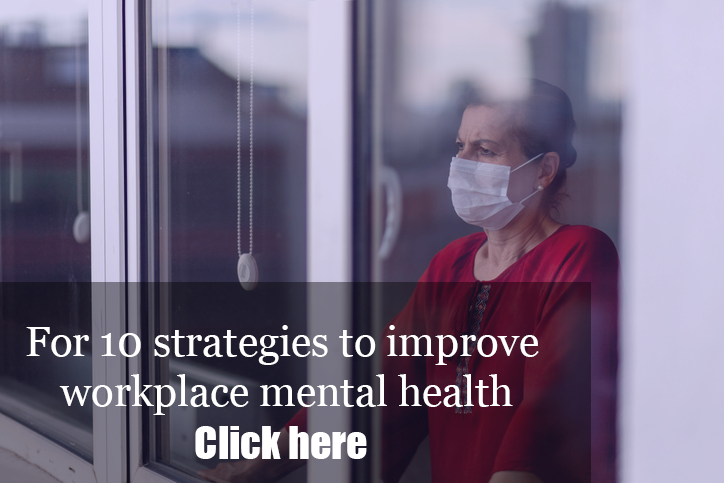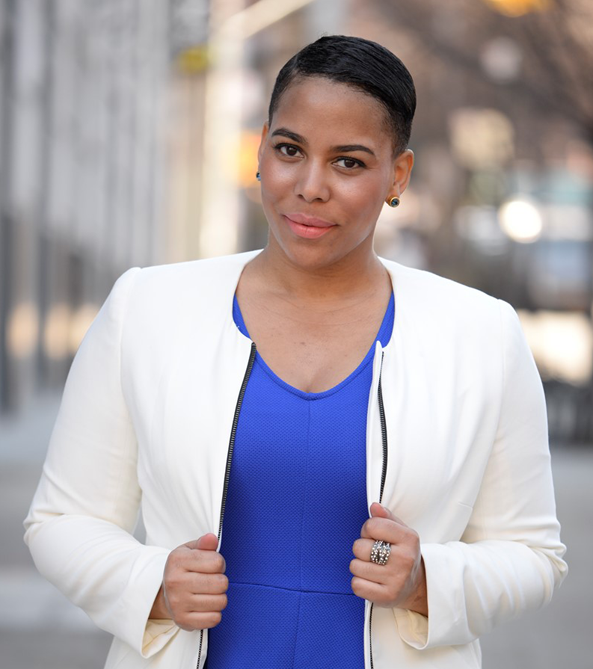Between COVID-19, racial tensions and the return to work, the mental health of all Americans is being challenged. Many are easily feeling overwhelmed by work and home responsibilities, which can exacerbate symptoms of anxiety, depression and stress. For Black employees, that can look slightly different.
Historically, Black people shoulder the pain and anguish of not only themselves as individuals, but also that of the collective group of Black people everywhere. As the medical profession has been reporting, the dismissal of Black pain has correlated to negative beliefs about Black people being innately more tolerant of pain than other races. This type of racist thinking has contributed to fewer reports of Black Americans with general anxiety or depression, as well as the more serious impact of historical and community trauma—and, more often, the stereotypes of black women and men as angry.
Over my 20 years of clinically treating Black people, I have often seen signs of mental stress manifested into sleep disorders, chronic illnesses, ruminations, moderate-to-severe anxiety and persistent depression. The historical traumas Black people have faced potentially worsen underlying conditions, and oftentimes, make addressing mental health needs more challenging. By the time Black people do address their mental health, they typically report chronic, physical symptoms—such as upper body pain, abdominal discomfort and irritability. As with a lot of people who look for more tolerable ways to cope, I’ve seen Black individuals with unaddressed mental health needs use compulsive eating, overworking and other defenses to avoid the underlying problems they’re having. Black people have historically used other outlets to deal with frustration and stress—including spiritual networks, religious institutions, sister circles, barber shops and hair salons, places where Black people tend to express what is going on at work or at home. The older generations of Black Americans often use theirs churches, pastors or prayers as their therapy.
Related: 10 strategies to improve employee mental health
The preoccupation with being viewed as weak or fragile compounds the insidious nature of mental health issues in Black people, too. If an employer is from a difference race, then they may not know these things nor be aware of how environmental factors and psychological trauma forge the beliefs that Black people do not feel pain in the same way as other people. Thereby, business leaders may not ask their Black employees inviting questions or notice the distinctions between a healthy Black employee and a vulnerable Black employee. These minor observations can lead to the difference between someone who contributes only their work to the job and someone who demonstrates social-emotional reciprocity with their co-workers and manager.
 On the one hand, some employees are willing to talk about going to therapy after work or take days off for their mental health. On the other, Black employees do not tend to use work as a resource for their mental health or to express those types of concerns in the workspace. There is a fear of being further marginalized by people and systems that have historically used their vulnerabilities against them. Fortunately, what is changing is the younger generation’s use of outpatient mental health care; millennials are the fastest-growing group of people who are using mental health resources. We still have a long way to go before the healthcare system and multiple generations of Black people build a trusting partnership with one another, but there is a growing hopefulness among practitioners and their clients.
On the one hand, some employees are willing to talk about going to therapy after work or take days off for their mental health. On the other, Black employees do not tend to use work as a resource for their mental health or to express those types of concerns in the workspace. There is a fear of being further marginalized by people and systems that have historically used their vulnerabilities against them. Fortunately, what is changing is the younger generation’s use of outpatient mental health care; millennials are the fastest-growing group of people who are using mental health resources. We still have a long way to go before the healthcare system and multiple generations of Black people build a trusting partnership with one another, but there is a growing hopefulness among practitioners and their clients.
See also: ‘Alarmingly elevated’ mental health risks
Paying closer attention to the way distress impacts Black employees requires attunement to the behavioral signs and mood changes of individuals, such as: employees calling out for mental health days, expressing more complaints, looking more distressed or taking longer than usual to complete their tasks. These changes need to be addressed in a way that is respectful to the person and their cultural differences. Managers can request time with an employee to decrease anxiety about being exposed and talk about their strengths before discussing their concerns. It is important to remind employees about mental health benefits, employee assistance programs or wellness services, if the company has them, and to encourage their use. This should be done in a supportive and sensitive manner to respect the difficulty of having this conversation.
These conversations should be done in ways that avoid making Black employees feel spotlighted, including one-on-one appointments or a generic email of the benefits available sent to all employees. Another option is to redirect Black employees to other culturally informed resources—particularly for people of color—such as Therapy for Black Girls and Black Men Heal, directories for wellness in the black community—and digital resources to get supplemental healing, like yoga or meditation, through community entities— such as Heal Haus, an integrative wellness center and café. Offering these resources can help equip employees to decide what kind of help they want and need. Plus, they can do so discretely.
Essentially, there is no capsize way of confronting a difficult conversation like mental stress at work. But, in this current climate of debates about racism and anti-racism education, many of us are starting to see things in new ways. These unique spaces we find ourselves in may have us examining ourselves as part of the pervasive problems about our humanity, as well as the ways we are responsible for reshaping it.
